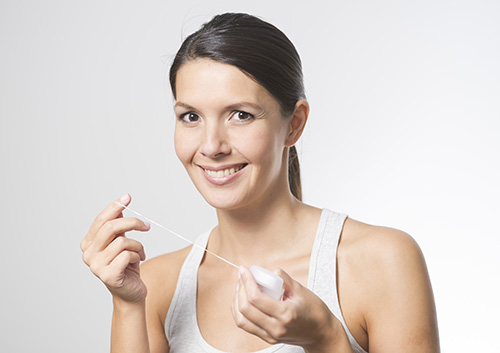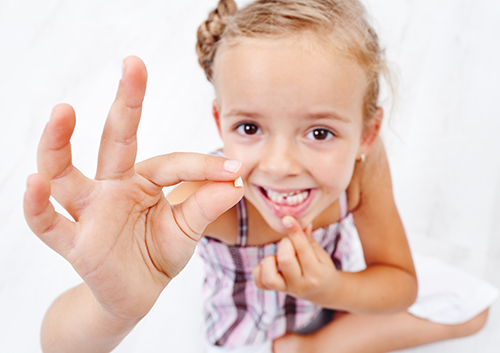Considerations When Picking the Right Mouthwash
November 27th, 2018

A solid oral health routine begins with daily brushing, flossing, and rinsing. Without a consistent oral health regimen, you may begin to experience tooth decay and bacterial infections. Few patients ask Drs. Angela Paros, Amer Atassi, Eric Young, Alexander Katsnelson about different mouthwash options, so we’ve put together a list of the conditions that mouthwashes can treat. This should help you decide which oral rinse would be best for you.
Gum Health
Antiseptic mouthwashes reduce large amounts of bacteria on and near the gum line and generally help to decrease your chances of developing gingivitis. The key ingredients of antiseptic mouthwashes are antibacterial and antimicrobial items. Antiseptic mouthwash is a preferable option if you are concerned about the general gum health of your mouth.
Fluoride
Fluoride is a great tool for preventive tooth decay treatment. It prevents tooth decay and is great for oral health in general because it kills germs that can live in your mouth. Fluoride also builds stronger teeth. If you’re a bottled water drinker, Drs. Angela Paros, Amer Atassi, Eric Young, Alexander Katsnelson may recommend that you purchase a simple fluoride rinse to use after brushing.
Bad Breath
Fluoride mouthwash can be used to fight any bad breath issues you may be facing. It’s designed to combat any bacteria that might be building up in your mouth. Most mouthwashes will help eliminate bad breath, but some are specifically designed to address this difficult problem. If you feel as though this might be turning into a chronic problem, please contact Drs. Angela Paros, Amer Atassi, Eric Young, Alexander Katsnelson to discuss other options that would be effective for treating your symptoms.
American Dental Association (ADA Approval)
The ADA reviews all mouth rinses for safety measures and to prove effectiveness. Any mouthwash approved by the ADA has met strict guidelines according to whether the manufacturer’s claims are supported with scientific evidence. If you’re looking for a quality mouthwash, look for one that has the ADA seal of approval to ensure you have a great rinse for your mouth.
Considerations
When you’re trying to decide which mouthwash to pick, contact our Romeoville, IL or ask Drs. Angela Paros, Amer Atassi, Eric Young, Alexander Katsnelson during your next appointment. If you experience a burning sensation in the soft tissues of your mouth, be sure to discontinue use immediately. Avoid letting children under age six use a mouth rinse, and be sure to keep all mouthwashes out of the reach of children, because they contain alcohol and other substances that could be harmful.
Does flossing hurt your gums?
November 20th, 2018

Ideally, it should never hurt when you floss your teeth. But if you haven’t flossed in a long while or don’t do it regularly, you may experience sore or bleeding gums. You should floss every day to avoid pain and maintain the best oral hygiene. In the meantime, there are a few things you can do to make flossing a little more pleasant.
Be Gentle
If your gums are sensitive, take your time and be gentle while flossing. Rough flossing can lead to more irritation and soreness. Also, daily flossing should help your gums become acclimated to the practice, and as a result, irritation should decrease over time.
Use an Alternative Method
If you still feel discomfort after being gentle, an alternative method of flossing may work better for you. A water floss machine or Waterpik can dislodge food particles and plaque without irritating your gums. Also, some brands of floss have a soft coating that make them less harsh and harmful to your gums.
Many people tend to forget or skip flossing, but it is one of the most important steps your dental hygiene routine and shouldn’t be neglected. If you are consistent about flossing, your gums should become used to it and won’t be so irritated in time.
For more flossing tips, schedule an appointment at our Romeoville, IL office and ask Drs. Angela Paros, Amer Atassi, Eric Young, Alexander Katsnelson or a member of our team!
The Many Types of Sedation Dentistry
November 13th, 2018

There are many reasons to choose sedation dentistry. Perhaps anxiety is an issue, or your teeth are extremely sensitive. You may have a low pain threshold, an easily triggered gag reflex, or need a lot of work done in one visit. If you think sedation dentistry might be right for you, this procedure is something we are happy to discuss before your appointment at our Romeoville, IL office.
Because your concerns and condition are unique, we will tailor your sedation to fit your specific needs. We will take a careful health history to make sure whatever medication is used is safe for you, and will not interact with your other medications or affect any medical conditions. The three most common methods of sedation include:
Our experience and training allow us to recommend a method that is specifically designed for your needs. If you would like to remain completely aware, but feel less anxious, if you would like deep sedation through the entire procedure, or if you want something in between, talk to us about your options. Whatever the reason you choose sedation dentistry, Drs. Angela Paros, Amer Atassi, Eric Young, Alexander Katsnelson and our team are here to provide you with a skilled and safe sedation experience.
The History and Mythology of the Tooth Fairy
November 6th, 2018

While the last baby teeth generally aren’t lost until age ten or 11, most children stop believing in the tooth fairy by the time they're seven or eight. Of course, children are more than happy to play along with the game when there’s money at stake! While it is impossible to know what the tooth fairy does with all those teeth (are they labeled and stored like museum pieces in a giant fairytale castle?), it is possible to trace the history and myth of the tooth fairy to several cultures and traditions. Drs. Angela Paros, Amer Atassi, Eric Young, Alexander Katsnelson and our team learned about some interesting myths about the tooth fairy!
The Middle Ages
Legend has it that Europeans in the Middle Ages believed a witch could curse someone by using their teeth, so it was important to dispose of baby teeth correctly. Teeth were swallowed, buried, or burned. Sometimes baby teeth were even left for rodents to eat. Despite being pests, rodents were valued for their strong teeth; it was generally believed a tooth fed to a rodent would lead to the development of a healthy and strong adult tooth.
Eighteenth Century France
The tooth fairy myth began to show more characteristics of a conventional fairytale in 18th century France. La Bonne Petite Souris, a bedtime story, tells the strange tale of a fairy that changes into a mouse to help a good queen defeat an evil king. The mouse secretly hides under the evil king’s pillow and defeats him by knocking out his teeth.
Scandinavian Lore
So, why does the tooth fairy leave money under the pillow? The idea of exchanging a tooth for coins originated in Scandinavia. Vikings paid children for a lost tooth. Teeth were worn on necklaces as good luck charms in battle. While the idea of exchanging a tooth for coins quickly spread throughout the rest of Europe, a fierce, horn-helmeted Viking is far cry from the image of a fairy collecting teeth.
While the tooth fairy as children know her today didn’t make an appearance until the 1900s, tooth myths and rites of passage have existed in numerous cultures since the dawn of time.






